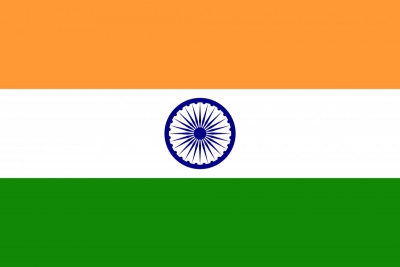Indira Priyadarshini Gandhi (Hindi: [nd ndi] (listen); ne Nehru; 19 November 1917 31 October 1984) was an Indian politician and a central figure of the Indian National Congress. She was the 3rd prime minister of India and was also the first and, to date, only female prime minister of India. Gandhi was the daughter of Jawaharlal Nehru, the 1st prime minister of India. She served as prime minister from January 1966 to March 1977 and again from January 1980 until her assassination in October 1984, making her the second longest-serving Indian prime minister after her father.
During Nehru's premiership from 1947 to 1964, Gandhi was considered a key assistant and accompanied him on his numerous foreign trips. She was elected president of the Indian National Congress in 1959. Upon her father's death in 1964, she was appointed as a member of the Rajya Sabha (upper house) and became a member of Lal Bahadur Shastri's cabinet as Minister of Information and Broadcasting. In the Congress Party's parliamentary leadership election held in early 1966 (upon the death of Shastri), she defeated her rival Morarji Desai to become leader, and thus succeeded Shastri, after his death, as Prime Minister of India.
As prime minister, Gandhi was known for her political intransigency and unprecedented centralisation of power. She went to war with Pakistan in support of the independence movement and war of independence in East Pakistan, which resulted in an Indian victory and the creation of Bangladesh, as well as increasing India's influence to the point where it became the sole regional power of South Asia. Citing separatist tendencies, and in response to a call for revolution, Gandhi instituted a state of emergency from 1975 to 1977 where basic civil liberties were suspended and the press was censored. Widespread atrocities were carried out during the emergency. In 1980, she returned to power after free and fair elections. After Gandhi ordered military action in the Golden Temple in Operation Blue Star, her own bodyguards and Sikh nationalists assassinated her on 31 October 1984.
In 1999, Indira Gandhi was named "Woman of the Millennium" in an online poll organised by the BBC. In 2020, Gandhi was named by Time magazine among the world's 100 powerful women who defined the last century.
The prime minister of India is the head of government of the Republic of India. Although the President of India is the constitutional, nominal, or ceremonial head of state, in practice and ordinarily, the executive authority is vested in the Prime Minister and their chosen Council of Ministers. The prime minister is the leader elected by the party with a majority in the lower house of the Indian parliament, the Lok Sabha, which is the main legislative body in the Republic of India. The prime minister and their cabinet are at all times responsible to the Lok Sabha. The prime minister can be a member of the Lok Sabha or of the Rajya Sabha, the upper house of the parliament. The prime minister ranks third in the order of precedence.
The prime minister is appointed by the president of India; however the prime minister has to enjoy the confidence of the majority of Lok Sabha members, who are directly elected every five years, lest the prime minister shall resign.
The prime minister unilaterally controls the selection and dismissal of members of the Council of Minister; and allocation of posts to members within the government. The council, which is collectively responsible to the Lok Sabha as per Article 75(3), assists the President regarding the operations under the latter's powers; however, by the virtue of Article 74 of the Constitution, such 'aid and advice' tendered by the council is binding.
The longest-serving prime minister was Jawaharlal Nehru, also the first prime minister, whose rule lasted 16 years and 286 days. His premiership was followed by Lal Bahadur Shastri's short tenure and Indira Gandhi's 11- and 4-year-long tenures, both politicians belonging to the Indian National Congress. After Gandhi's assassination, her son Rajiv took charge until 1989, when a decade with six unstable governments began. This was followed by the full terms of Atal Bihari Vajpayee, Manmohan Singh, and Narendra Modi. Modi is the 14th and current prime minister of India, serving since 26 May 2014.

1984Jun, 5
The Prime Minister of India, Indira Gandhi, orders an attack on the Golden Temple, the holiest site of the Sikh religion.
Choose Another Date
Events on 1984
- 7Jan
Association of Southeast Asian Nations
Brunei becomes the sixth member of the Association of Southeast Asian Nations (ASEAN). - 5Jun
Indira Gandhi
The Prime Minister of India, Indira Gandhi, orders an attack on the Golden Temple, the holiest site of the Sikh religion. - 4Aug
Burkina Faso
The Republic of Upper Volta changes its name to Burkina Faso. - 20Sep
Beirut
A suicide bomber in a car attacks the U.S. embassy in Beirut, Lebanon, killing twenty-two people. - 26Sep
Transfer of sovereignty over Hong Kong
The United Kingdom and China agree to a transfer of sovereignty over Hong Kong, to take place in 1997.

 English
English  español
español  français
français  português
português  русский
русский  العربية
العربية  简体中文
简体中文 